Ancient Greek culture has fascinated the world since it could first be considered ancient. The mythology, the politics, the people, the battles, and more. But history works a little bit like the telephone game. Stories get told and retold enough times, and suddenly myth is born. What seemed like fact is, in fact, myth.
10. Spartans Weren’t All Badass
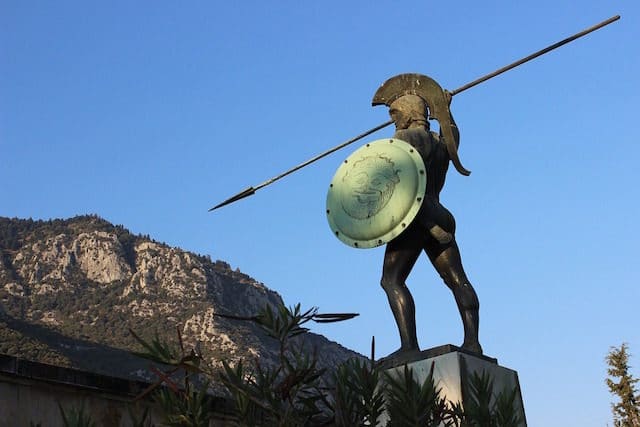
Thanks to Hollywood, and in particular the movie 300, most people are confident that Spartans were the most formidable warriors in all of Ancient Greece. They were a society bred for one purpose – war.
When the military history of Sparta is looked at broadly, it doesn’t stand out as any more impressive than the military history of most any other nation. Did they have great victories? Of course. But they also suffered losses. There was nothing supernatural about them.
Nearly every myth about Sparta is just that: a myth. Their military might was average. They would willingly surrender in battle if the odds were against them. They did not sacrifice weak children. They were not opposed to personal wealth and possession. They even allied with the Persians against other Greeks.
9. Pandora Didn’t Have a Box
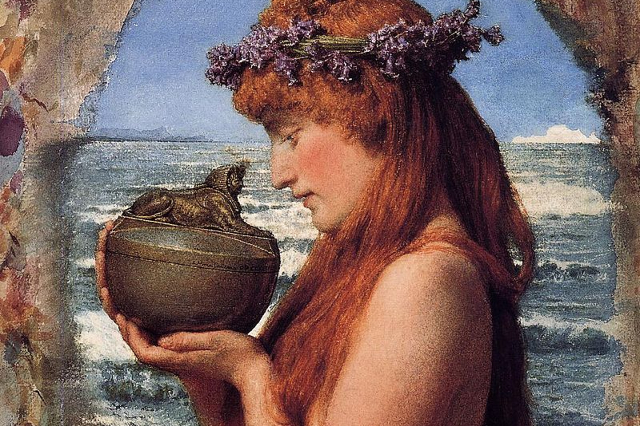
It’s weird to think of mythology as having myths surrounding it, but it does happen. The case with Pandora’s Box is a prime example of this in a very explicit way. Pandora didn’t actually have a box.
A box is usually an insignificant detail in most stories, but since this one is literally called “Pandora’s Box,” it’s an important detail. The fact that it became a term in everyday speech makes it more so.
When we say someone has opened a Pandora’s Box it means they did something simple that had some serious repercussions. The word used in the original story about Pandora, the first woman on Earth who was created out of water and earth, is “pithos.”
The common definition of pithos would be jar. Pithos were used frequently in Greek culture. Anything could be stored in them, from wine to bodies. But a later translation from the 16th century misread pithos as pyxis, which means box.
8. Spartan Women Were Powerful
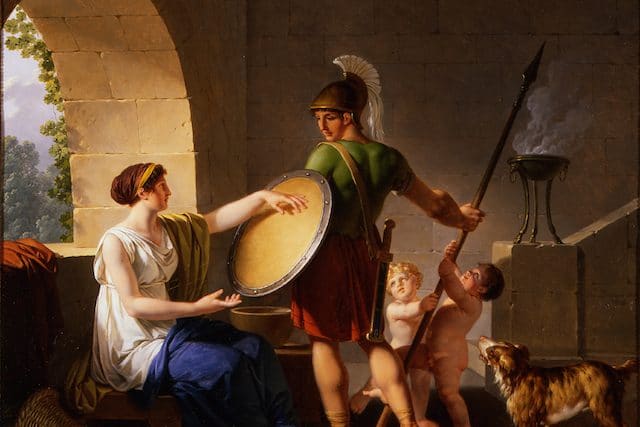
The movie 300 didn’t just convince people that Spartans were the Supermen of the ancient world. It also made it seem like men were the driving force in society. They did everything while women stayed home and took care of the kids, and maybe cooked dinner. But this was not always the case.
Spartan women were independent in a way few other Greek women were. They were given an education, something unheard of in many other of the Greek Polis. And while they couldn’t turn that education into a job to earn money, they did have other advantages. For instance, a Spartan woman could own land.
Spartan girls could train outdoors with the boys in physical exercise. They even competed in sports. They also were known for their wit and wisdom, something other women of the Greek world were not allowed to be a part of.
7. Statues Were Not White Marble
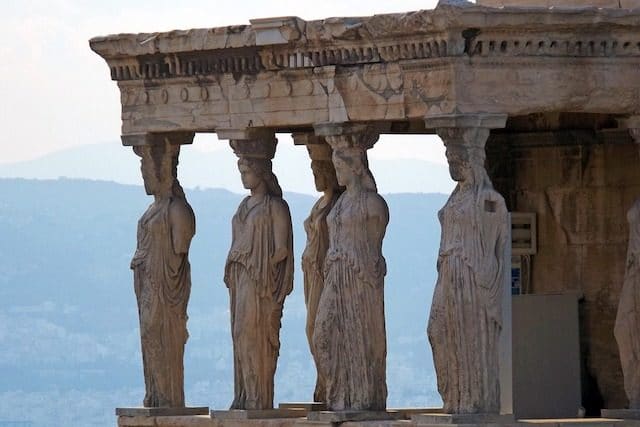
One of the most famous relics of the Ancient Greek world that we still have access to is the art. Not everything survived all these years, but some pieces that did have been dramatic and memorable. Some of the most noteworthy have been the statues.
Most of us have seen statues like the Aphrodite of Knidos or the Venus de Milo. These are masterfully carved from marble with such skill you can see the fluid curves of the flesh. They look like living people turned to stone. And while they are still beautiful in their alabaster glory, this is not how they originally looked.
Greek sculptors painted their works. Back in the day, when these statues were first on display, they would have been brightly colored. The subjects would not have all been white, either. Vases and other works depict people of many skin tones in Greek art, and their sculptures would have reflected the same.
6. Hades Isn’t Satan
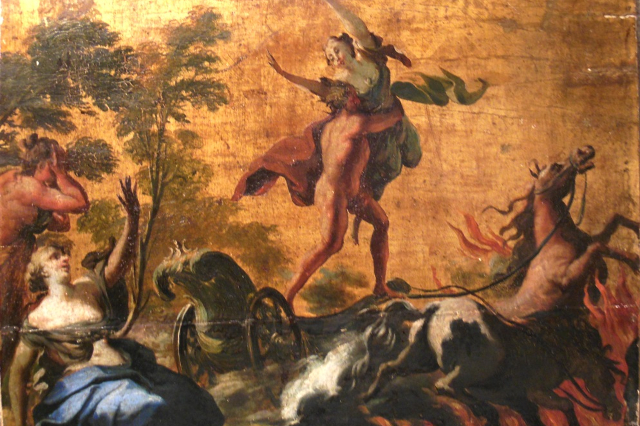
In modern mythology and fiction, when you see Hades, he’s not a good dude. For the most part, Hades is synonymous with Satan. It’s easy to see how this comparison came about. They both rule the underworld where spirits go in the afterlife. And part of the Greek underworld is not a very nice place. Tartarus is synonymous with Christian Hell, and it’s where souls of the damned meet their punishment.
The differences are enough to make it worth noting that Hades and Satan are very much not the same. For instance, Hades the place, as opposed to Hades the individual, isn’t just Tartarus. Elysium is there as well, and this is synonymous with Christian Heaven.
Hades’ job wasn’t just to rule the dead. He ruled anything in the earth. This included anything from ore to be mined and seeds to grow. Basically, Satan was evil but Hades was a god. He was neither good nor bad. Or, more accurate to the Greek pantheon, he could be both.
5. Greek Democracy Wasn’t Modern Democracy
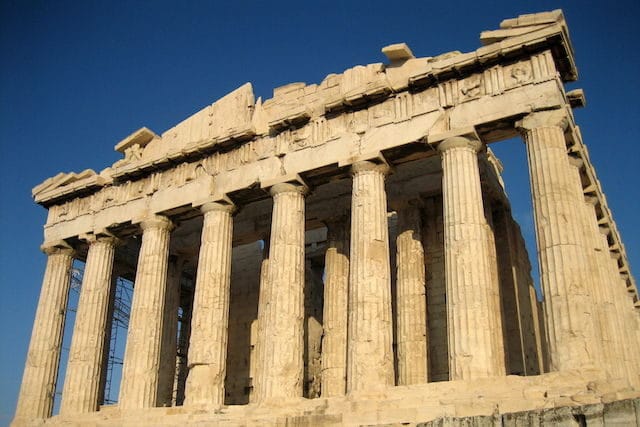
Nowadays when we think of democracy as a system of government we tend to imagine the Greek version. Greece was run as a pure democracy, and from it all modern democracies were born. The most fair and representative form of government of all. The problem is that Greek democracy was not exactly the democracy we think of today.
Athenian democracy was not the idealistic form of government modern people may think. Everyone in society did not have a say and, in fact, only a select few counted and were able to be a part of that democracy. Women could not vote in the Athenian democracy, nor could slaves. Non-citizens, known as Metoikoi, were also unable to vote. These were any foreigners who came to live in Athens and were still free people.
It has been estimated that if Athens had a population of 300,000, up to 100,000 of those people were slaves. Another 25,000 were metoikoi. Of the leftover 175,000, about half must have been women. Factor in people not of an age to vote, and it’s been estimated that perhaps only 50,000 or so of the entire Athenian population was able to vote. That’s some serious voter disenfranchisement.
4. Greece Was Not Unified
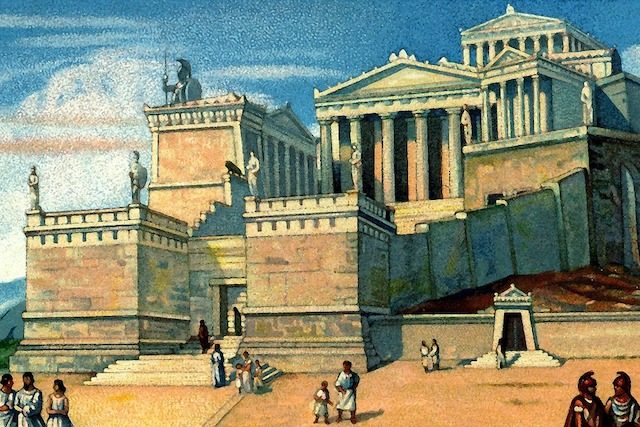
Although it seems obvious when you start thinking about it, Greece was not a single, unified nation. When people talk about it today it’s just Greece. It’s like modern Greece, one country that occupies one space on the map. But Ancient Greece was not nearly so simple.
The reason we talk about Athenians and Spartans and Corinthians and Thebans is because they all came from their own city-states. These were called Greek Polis, and there were many of them. The major ones are the ones we all know from movies. But there were somewhere between 1,500 and 2,000 of them in total.
That which unified Greece in any way was their religion, their language, and their geography. They were located close together, and they shared some of the same values. So if a foreign enemy were to attack, these city-states would band together as one.
Without a foreign influence to band against, these city-states would often battle one another. Sparta defeated Athens but later fell to Thebes, for instance. Larger city-states, in particular Athens, were much more powerful than some of the lesser known states. For that reason, it held sway over these smaller states.
With a landscape separated by rivers, mountains, and great empty spaces in a time before technology, unification was all but impossible and probably not even desired.
3. There is Almost No Spartan History
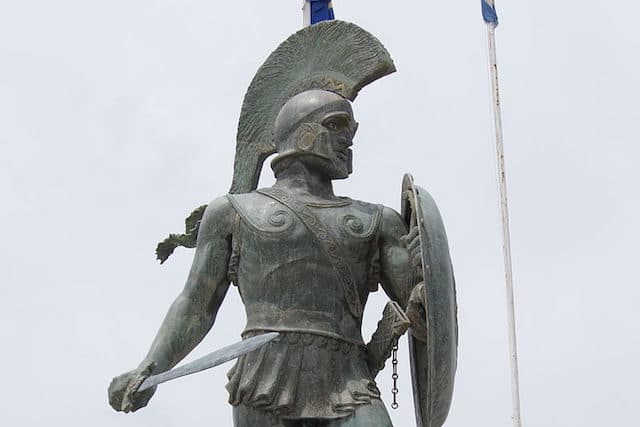
We’ve already seen a few major myths about Spartan culture. This last point really speaks to how and why so many myths about them came to be so widely accepted. Spartans were not big on writing things down. There is very little first-hand information about any aspect of Spartan culture. That includes their history.
The little we do know about Spartans comes from contemporaneous accounts written by other Greeks; those who saw and interacted with them. This is perhaps why so many details about them are spurious, because they were filtered through outside observers.
What has remained of Sparta, which was actually only a city-state in Laconia and was reduced to a minor power at best after a serious loss to the Thebans, is decidedly not what people expect. Spartans were known for poetry and pottery. The pottery was exemplary and the poetry, or at least the little that remains, indicates people who were as enamored with art as they were with war.
The remainder of their history, from how they fought in wars to why the city rose and fell, was almost all exclusively written by outsiders.
2. Slavery was Widespread

There is a common belief in modern times that Greeks did not have slaves or did not endorse slavery. Criminals might be forced into servitude in the Colosseum, for instance, or prisoners of war could perhaps become servants. But the truth was slavery was a part of everyday Greek life, and it was widespread.
The idea that slavery was in any way wrong was not a belief expressed in Ancient Greece. It seems as though the concept of slavery was seen as natural and many slave owners regarded their slaves with a curiously friendly outlook. If anyone were to feel that slaves were harshly treated in general, they’d likely just treat their own slaves more kindly than others did.
This is a key distinction to make between our modern understanding of slavery and the Ancient Greek view. Although we can’t know what the slaves themselves thoughts, no one else in society thought there was any reason for slavery to not exist.
1. The Greeks Didn’t Invent Everything We Think They Did

The modern world has a lot to thank Ancient Greece for. If you look up a list of things invented by the Greeks you’ll find everything from lighthouses to water wheels. However, the Greeks get some credit they may not deserve.
Democracy is one of the big ones that pops up when people list Greek inventions. This is a one-two punch of potential misinformation. To start, it’s generally considered that Athens was the first democracy, but this is not the case. Athens wasn’t even the first Greek Polis to adopt democracy. Over a dozen others had adopted a similar method of government, including notable states like Syracuse, before Athens.
In addition to other Greek states, democracy can trace its roots back to Mesopotamia as well. It may not have been the democracy of the Greeks, and certainly not modern society, but it predated Athens.
Another suspect invention of the Ancient Greeks is a staple of math classes around the world – the Pythagorean Theorem. As much as Pythagoras may have popularized this simple mathematical concept, it was not his invention. An ancient Babylonian tablet dating back 3,700 years shows that the concept was known a solid 1,000 years before any Greek laid claim to it.